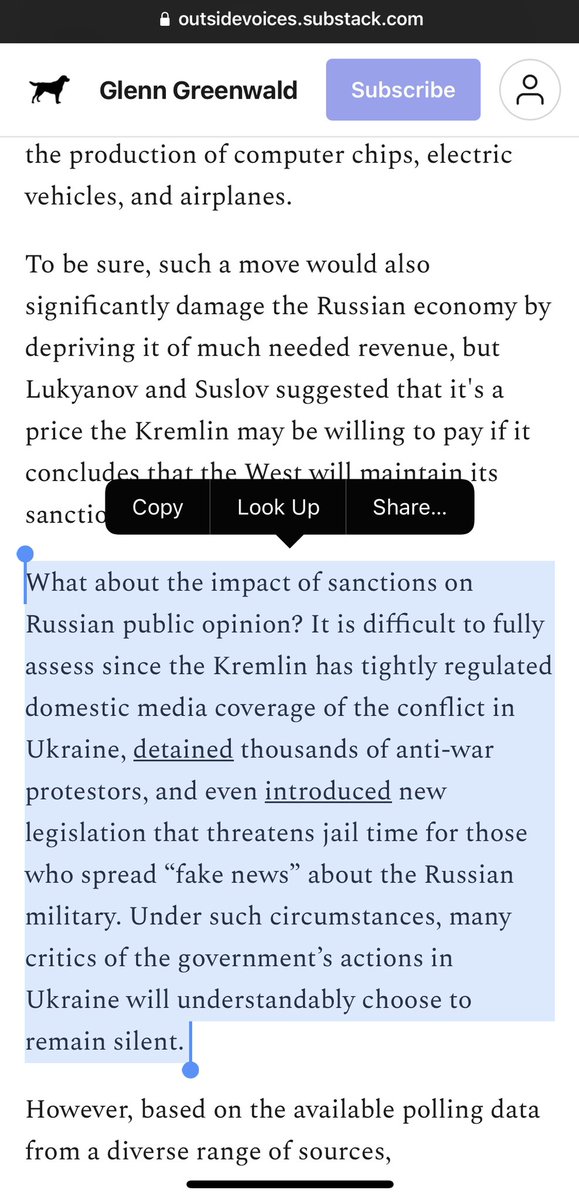
According to a recent survey by the Levada Center, Russia's leading/only independent pollster, Vladimir Putin's approval rating has reached 83%, an increase of 12 points over the past month.
This is Putin's highest figure since the start of his fourth term back in 2018.
This is Putin's highest figure since the start of his fourth term back in 2018.

Incidentally, I recently wrote an article for @ggreenwald where I interviewed Denis Volkov, director of the Levada Center, about potential impact of the #UkraineConflict and Western sanctions on Russian public opinion.
https://twitter.com/ggreenwald/status/1508068046916702214
Here is what Volkov told me about why a majority of ordinary Russians appear to support the Kremlin's actions in Ukraine despite the economic pain of Western sanctions. 

• • •
Missing some Tweet in this thread? You can try to
force a refresh






